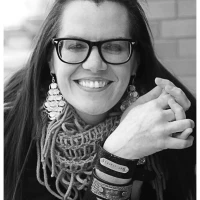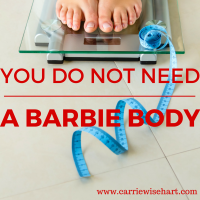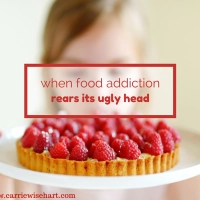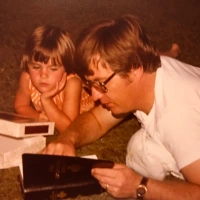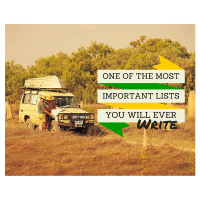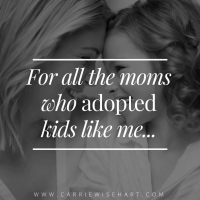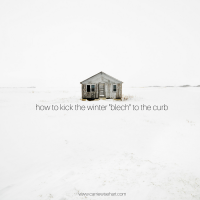“In 3rd grade [a young boy] was given an assignment to gather pussy willows for a Mother’s Day project. For whatever reason (probably because he was just an 8-year-old boy) he’d recently heard the story of Moses in the basket and had cattails in mind. He gathered a bunch and brought them to school the next day, very proud of himself. The Nun snatched them out of his hands and threw them in the garbage in front of the whole class and made a mean comment about him not even being able to get that right. He hated school from that moment on, he remembers very clearly thinking, ‘I’m done, this is it for me.'”
Recently I polled my Facebook friends, asking them this question:
Can you recall a school incident that was so shaming, embarrassing, or disheartening
that it changed how you thought
of yourself as a learner?
The comments rolled in and the notifications were dinging faster than I could click on them. Appallingly, a majority of the scars came from teachers’ comments to young students in elementary school.
“You are S-T-U-P-I-D.”
“The only funny thing in this room is your face.”
“You’ll probably kill yourself after high school.”
“”Oh, don’t worry about it, honey. You’ll never use this as a housewife and mom.”
“You’ll never amount to anything.”
“You’re a lazy, bad kid.”
“You’re not creative.”
“You’re dumber than a box of rocks.”
“You think you’re special, but you’re not.”
As I scrolled through all of these heartbreaking stories, I felt my heart in my throat. Honestly, I was so overcome with emotion I had to walk away from the post for awhile before I could go back to reading. The statements above…there aren’t words to describe the deplorable nature of these careless comments. No one should hear these words, let alone children.
In a school.
By someone they are supposed to feel safe with.
Grown adults were recalling scars from classrooms – pushed into chalkboards, seated according to their test scores, misunderstood for learning disabilities, judged by appearance. The list went on and on and on.
But then, some hope.
“All those years of telling myself that I was not good at math was truly the problem, not the math itself.”
“Our grades are not always a reflection of our intelligence.”
“This is why I became a teacher.”
“I have never forgotten the love he showed me.”
“It’s not the scars. It’s how you react to them.”
I started the research for this blog post thinking I could combat the abuses that happen in schools, in classrooms, in lunchrooms, and on playgrounds. But the sad reality is, life itself is full of these awful scenarios. If it doesn’t happen in the classroom, something will happen in the home or at the workplace. We inevitably will face adversity somewhere, somehow in our lives.
I always tell my students I wish I could take them all home and bake them chocolate cake and promise that nothing bad will ever happen to them.
But it will.
That does not mean I won’t continue to fight for equity in schools and changing the culture of our classrooms. Because I will. Always. But knowing that we will all face adversity in life, the question I posed to my Facebook friends brought a surprising result.
My charge came from one simple, wise statement:
“It’s not the scars. It’s how you react to them.”
Teaching students and adults how to advocate for themselves, how to respond to pain, how to seek out help, how to get therapy or counseling, how to get the tools they need to live the fullest life, that is what I want, what I need to do.
I can go out and catch a fish and give it to them, or I can teach them HOW to fish so they can take the skill with them.
And I will hopefully model how to cope, how to have perspective, how to manage pain, how to see the positive, and how to get help if they need it.
I have some battle wounds from fifth grade when my teacher put me in “Skid Row” for forgetting my homework ONE time. I was isolated from the rest of the students. No one could talk to me or look at me. I was made fun of and heckled. That incident attributed to a perfectionism that constantly tuned me to connect my worth to my work.
I could be resentful of that teacher OR like my wise friend posted, I can DO something with that scar.
Nelson Mandela wrote, “Resentment is like drinking poison and then hoping it will kill your enemies.”
So many adults are carrying the scars of their youth. So many youth are carrying the scars of their childhoods. And although I wish I could wipe all of those scars away, I can’t. What I can do is change my own world by teaching and modeling tools they can take to change their OWN worlds.
I can attempt to model the positive ways I am trying to use my scars to make the world a better place.
On behalf of the person who caused you hurt and shame, I am sorry. It wasn’t right. But I vow to do my best to take the powerful responsibility I’ve been given as a high school teacher to help students come to grips with their own scars and learn how to respond to them.
Who you are is not determined by anyone else. I love how Brene Brown puts it: “Just because someone failed to see the value in what we create or achieve doesn’t change its worth or ours.”
Your scars can never define you. Don’t let them define you. And use your pain so someone else doesn’t let their scars define them. Let’s do it together.



